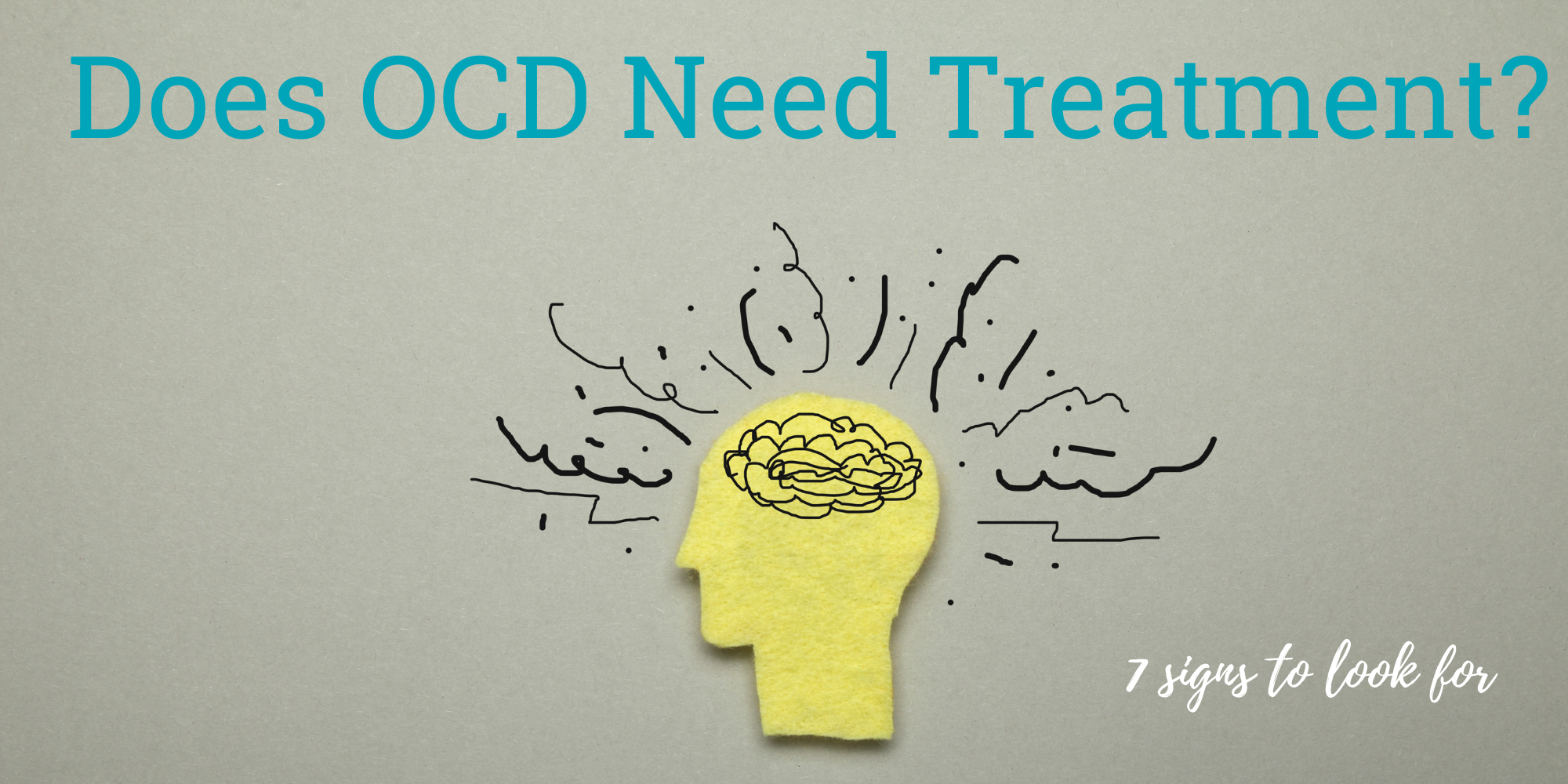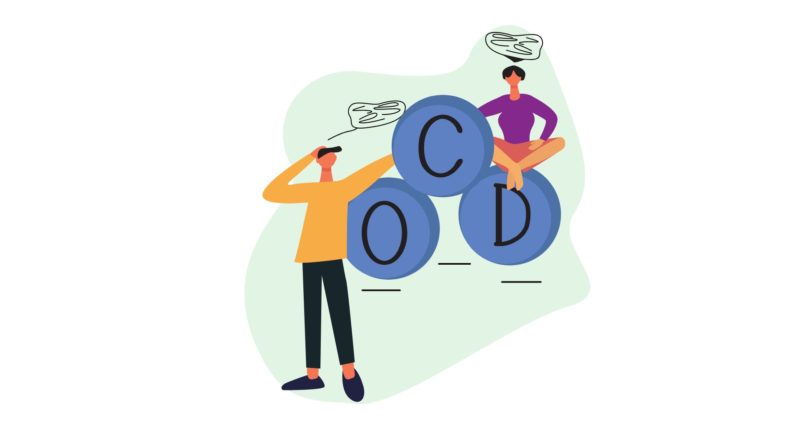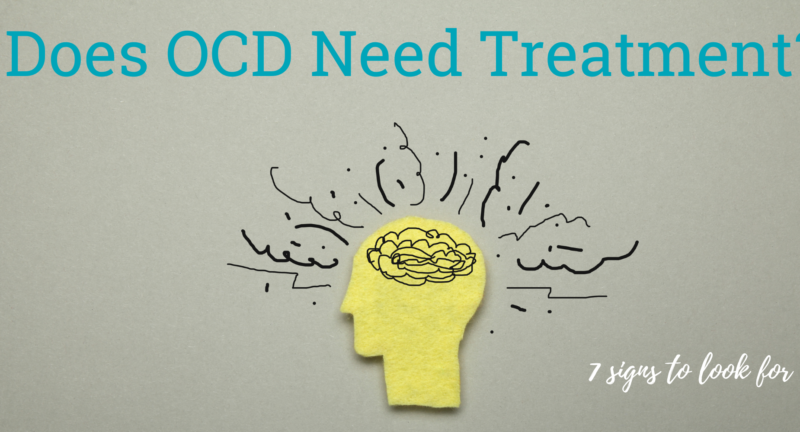
Does Your OCD Need Treatment?
Obsessive-compulsive disorder (OCD) is an anxiety disorder marked by recurrent intrusive thoughts and fears that lead to ritualistic behaviors. At first, you might find the obsessions and compulsions are manageable, but left untreated, the patterns of OCD can impact all aspects of your life. Here at Next Step 2 Mental Health, our multidisciplinary team excels when it comes to diagnosing and treating OCD. If you spot the signs of OCD in you or your child, it’s never too early to receive professional help.
If you’re unsure if your OCD requires treatment, here are seven signs that your OCD could benefit from medical intervention.
But First… What Is OCD?
Before we dive into the signs that OCD requires treatment, let’s first cover what OCD is. OCD is short for obsessive-compulsive disorder. Watch the video below to hear what the International OCD Foundation says about the disorder.
As discussed in the short video clip, OCD is characterized by obsessions (intrusive, unwanted thoughts) and compulsions (behaviors).
Common obsessions include:
| Contamination | Losing Control | Harm | Perfectionism | Scrupulosity | Unwanted Sexual Thoughts | Other |
| Fear of germs | Fear of acting on an impulse to harm oneself or others
|
Fear of being responsible for something terrible happening | Fear of losing or forgetting important information when throwing something out
|
Concern with offending God
|
Forbidden or perverse sexual thoughts or images | Superstitions |
| Disease | Fear of violent or horrific images in one’s mind
|
Fear of harming others because of not being careful enough | Concern with exactness | Concern about blasphemy | Forbidden or perverse sexual impulses about others
|
Concern with getting a physical illness (not related to the diseases in the first column pertaining to germs) e.g., cancer
|
| Concern with household or environmental contaminants | Fear of stealing things | Fear of losing things | Excessive concern with right/wrong or morality
|
Obsessions about aggressive sexual behavior towards others
|
Concern with unlucky items, numbers, or colors | |
| Dirt | Fear of blurting out insults or curse words | Concern with a need to know | Inappropriate sexual obsessions | |||
| Body Fluids | Inability to decide whether to keep or to discard things
|
Now that we’ve covered what OCD is and examples of common obsessions, let’s explore the signs that your OCD isn’t under control.
Signs Your OCD Requires Treatment
1. You Can’t Control Your Obsessions Or Your Behaviors

The types of obsessions or compulsions can vary from person to person. Regardless of which obsessions you struggle with, if you can no longer control them, then you might benefit from help.
2. You Spend Too Much Time Thinking about Your Obsessions
How much is “too much time” thinking about your thoughts? If intrusive thoughts interfere with your daily life or take up more than one hour (per the National Institute of Mental Health (NIMH)), consider asking for help.
3. Your Anxiety Isn’t Relieved by the Compulsions
Although OCD and anxiety are often discussed as separate conditions, OCD is a type of anxiety disorder. Other anxiety disorders include generalized anxiety disorder (GAD), post-traumatic stress disorder (PTSD), social anxiety disorder, and panic disorder. Many people who complete ritualistic behaviors report that they do it because it helps to ease their anxiety. They also note that refraining from the behavior (whether that’s checking the door or retracing steps, etc.) increases their feelings of anxiety.
If you feel trapped in a cycle of anxiety and compulsions, there is hope. OCD treatment, which may include a combination of therapy, CBT, medication, and even lifestyle changes, can help you learn to manage your thoughts and behaviors to free you from the control of anxiety.
4. Your Career Is Suffering
Intrusive thoughts and ritualistic behaviors can suck up a lot of your time at work. For example, ruminating on obsessions can take up hours of your time and prevent you from getting your work done. Getting the right OCD treatment can help you manage your anxiety, which can lead to a more productive work day.
5. Your Personal Relationships Are Suffering
OCD doesn’t just impact your work performance. Unmanaged OCD can start to affect your relationships with your spouse, family members, and friends. You might consider OCD treatment if:
- Your thoughts take up the time you’d normally spend with your family
- Your compulsions limit your ability to enjoy time with friends or family
- Your OCD is getting in between you and your spouse
6. Your Child Continually Asks If He’ll Be Okay
Children can also be diagnosed with OCD. Children may struggle with many of the same intrusive thoughts as adults, including fear of contamination and fear of harm. You might suspect your child struggling if he continually asks if “he’ll be okay”. According to the International OCD Foundation, this can be a sign of pediatric OCD.
Other signs of OCD in children include:
- Excessive checking (re-checking that homework is done, lights are off, the door is locked, etc.)
- Excessive washing, tidying up, and/or cleaning
- Repeating ritualistic behaviors until they are “just right” … or starting over again until they are right
- Obsessing with rearranging things
- Mental compulsions which may include excessive praying or mental reviewing
- Frequent apologizing
- Reciting lucky words or numbers or phrases; using lucky items, etc.
If you notice any signs of OCD in your child, seeking professional treatment can help restore the quality of your child’s life.
7. You Used to Have OCD Managed, But Not Anymore
Even if you previously had control over your OCD — either with therapy and lifestyle changes — you might benefit from additional treatment, especially if your symptoms are regressing. If your current treatment plan is no longer working for you, we can help you get the relief you need. Many people find that a combination of therapy and medication is beneficial.
How Is OCD Treated?
At Next Step, we know how profoundly OCD can impact all aspects of your life, and if you’re struggling now, you don’t have to wait until it gets worse before reaching out for help. Our compassionate, non-judgmental team offers a variety of OCD treatments, including medication and therapy.
To reclaim control over your OCD, call our Louisville, Kentucky office at 502-339-2442. You can also request an appointment online.
Related Posts
7 Things Teens with OCD Need to Know
Obsessive-compulsive disorder, more commonly called OCD, is a chronic mental...
Does Your OCD Need Treatment?
Obsessive-compulsive disorder (OCD) is an anxiety disorder marked by recurrent...


